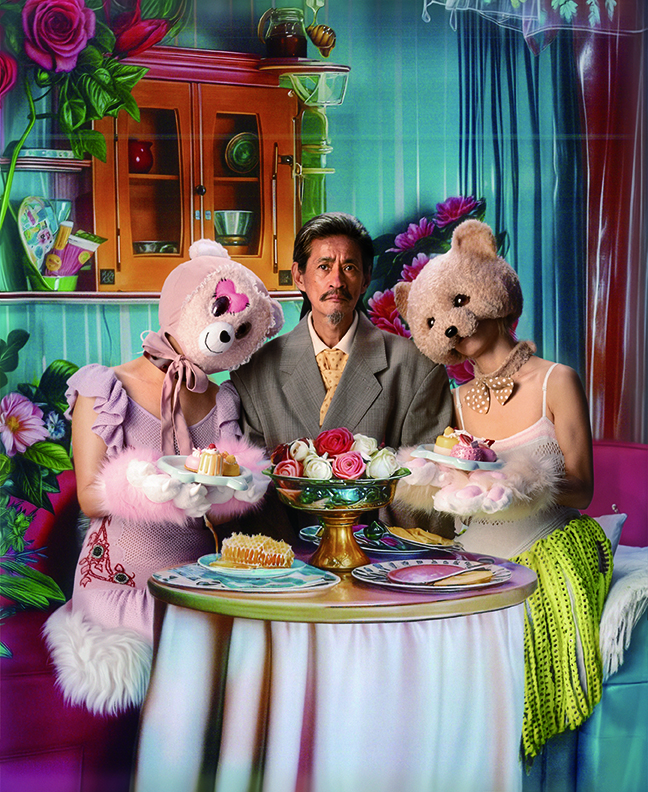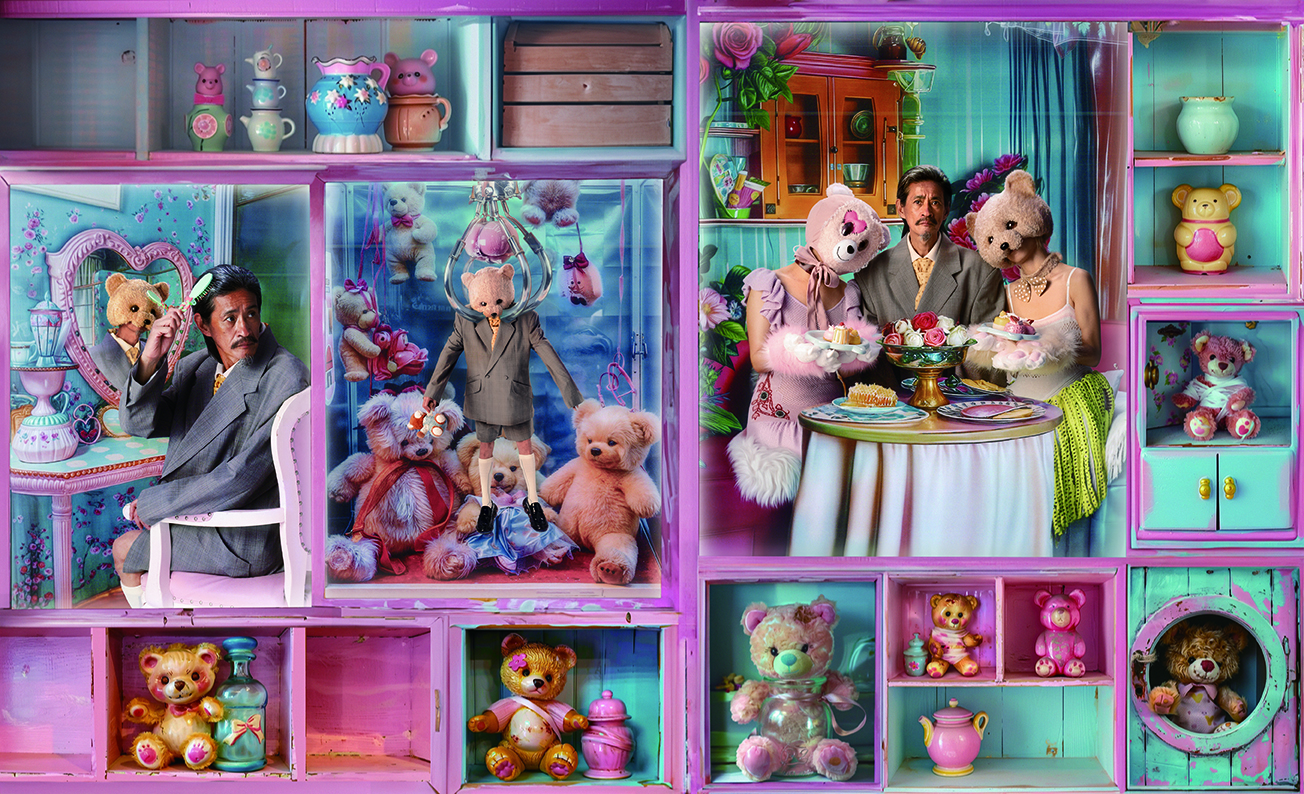MAYA 0.1
AI / Art / Culture / Design / Fashion / Photography / Technology
TODAY.... the development of technology has brought us a personalized world.
When you talk to AI. AI constructs itself based on what you say. It pays attention to everything you know or don’t know about you. Its world scope is as if it were created based on your intelligence. A world where it’s like your alter ego and constantly testing you to know exactly where you are.
However, we should remember that what AI collects from its database and shows us is all from human beings. Inevitably the bias is inherited in the database and also utilized when it builds a personalized world for us. It leads me to think, since the personalized world customized by AI for us is a world created based on our human senses and self-boundary awareness if we continue to explore ourselves in this world with this unconscious bias expanding and accumulating, it will obviously to some extent harm individuals physically or psychologically.
Therefore, in this proposal, I want to visualize the biases that humans have given to AI in the form of a personalized room. There are people with different identities in this room, and AI has customized this personalized room through communication and understanding with these people. Is this room that seems to completely fit the character’s identity really what they need, or does it further amplify their inner fear of identity recognition?
WILLOW'S WIGGED MIRAGE
Willow’s personalized room crafted by AI unwittingly reflects the biases ingrained within its database. While Willow’s external persona as a transgender woman exudes confidence and beauty, the AI interpretation of her struggle with hair loss manifests in a room filled with colorful wigs and manga-inspired masks. While the room attempts to cater to Willow’s needs, its portrayal of beauty and identity inadvertently reinforces social biases surrounding hair loss and femininity. This juxtaposition highlights the inherent limitations and potential risks of AI customization, urging us to confront and address biases embedded within our technological creations.
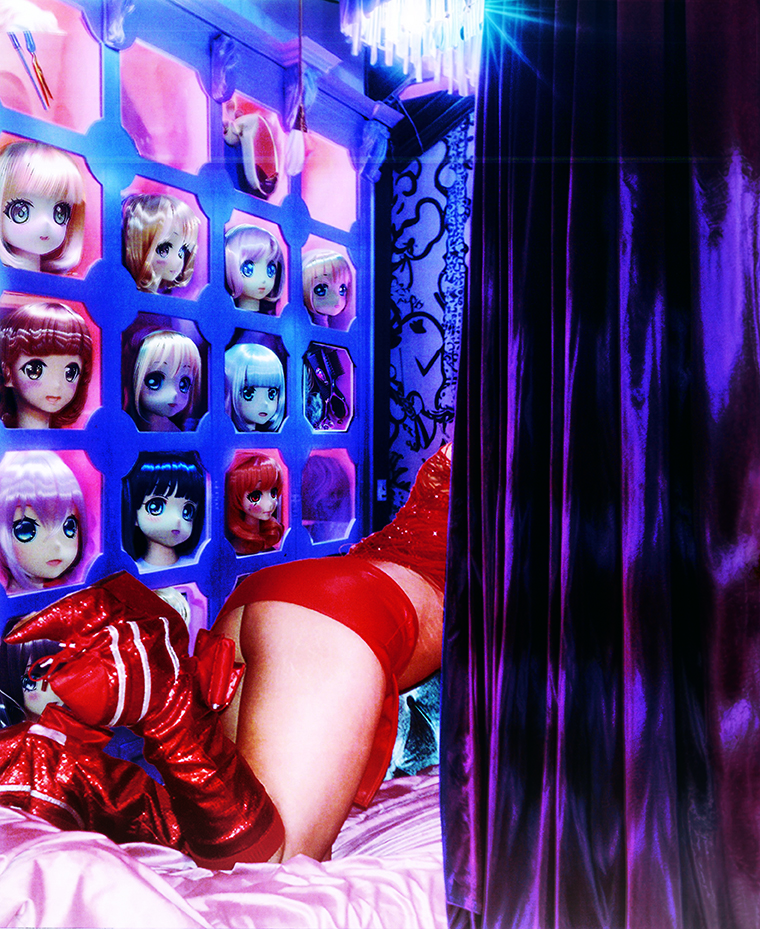
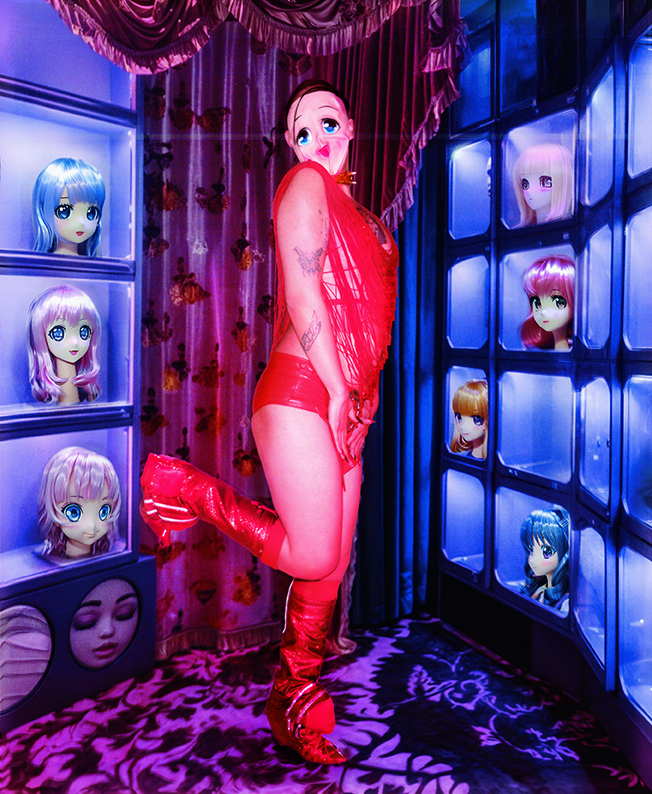
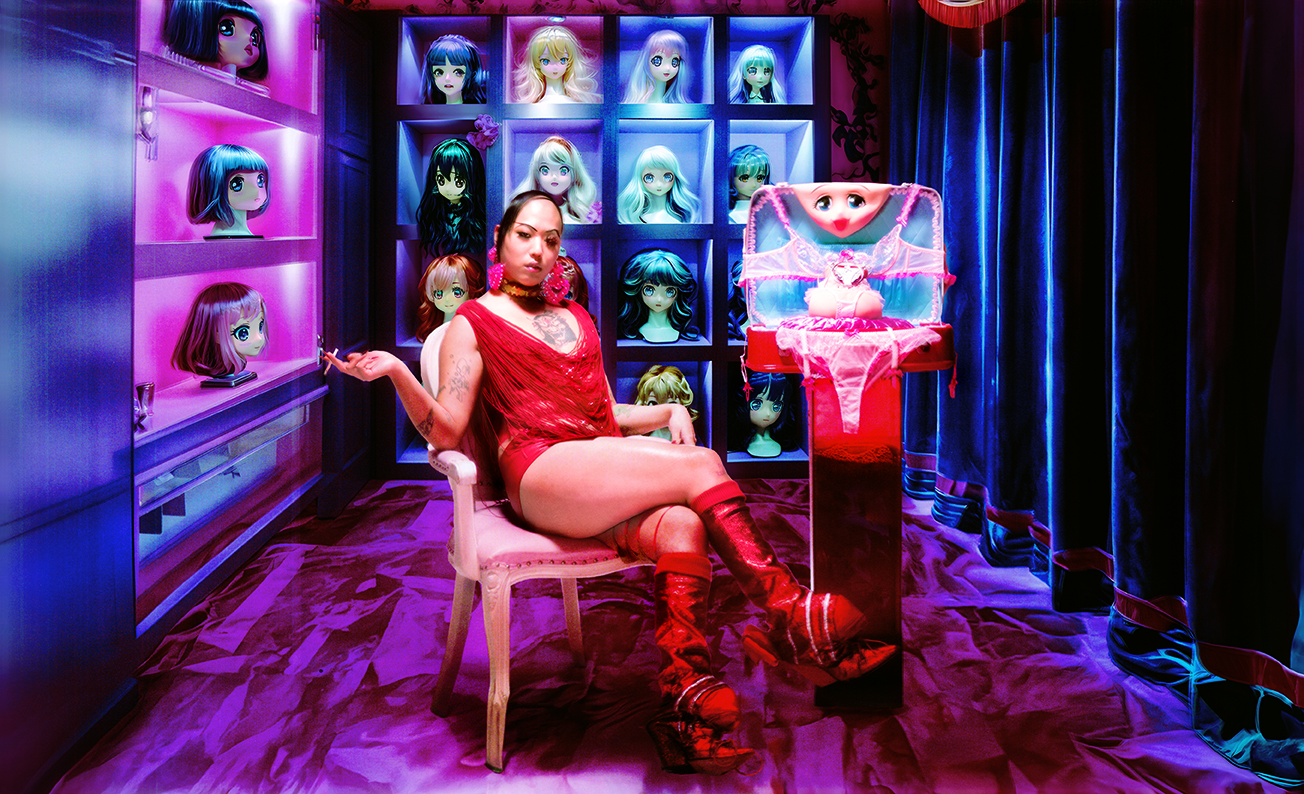
FINN'S YEARNING FOR MERMAID DREAM
Finn is a teenage boy who faces the challenges of living with a disability after experiencing an accident that resulted in the loss of his leg. Finn's personalized room crafted by AI, transforms into a dreamlike sea world where he is adorned with a beautiful mermaid tail. While this fantastical portrayal initially seems like a whimsical escape, the AI’s interpretation of Finn’s desire reflects biases ingrained within its database.
The sea world, with its mermaid imagery and Finn’s ability to perform pole dances and navigate with a mermaid tail, suggests a romanticized view of disability—one that emphasizes beauty and grace over the realities of Finn's physical limitations. By projecting Finn’s longing for mobility and acceptance onto the mermaid motif, the AI inadvertently perpetuates societal biases surrounding disability, suggesting that Finn’s worth is tied to his ability to conform to an idealized standard of beauty and functionality.
This story highlights the dangers of AI biases in shaping individuals’ perceptions of themselves and their identities. By failing to accurately understand and represent Finn’s experiences and desires, the AI reinforces harmful stereotypes and unrealistic expectations, ultimately limiting Finn’s agency and potential for true self-acceptance.
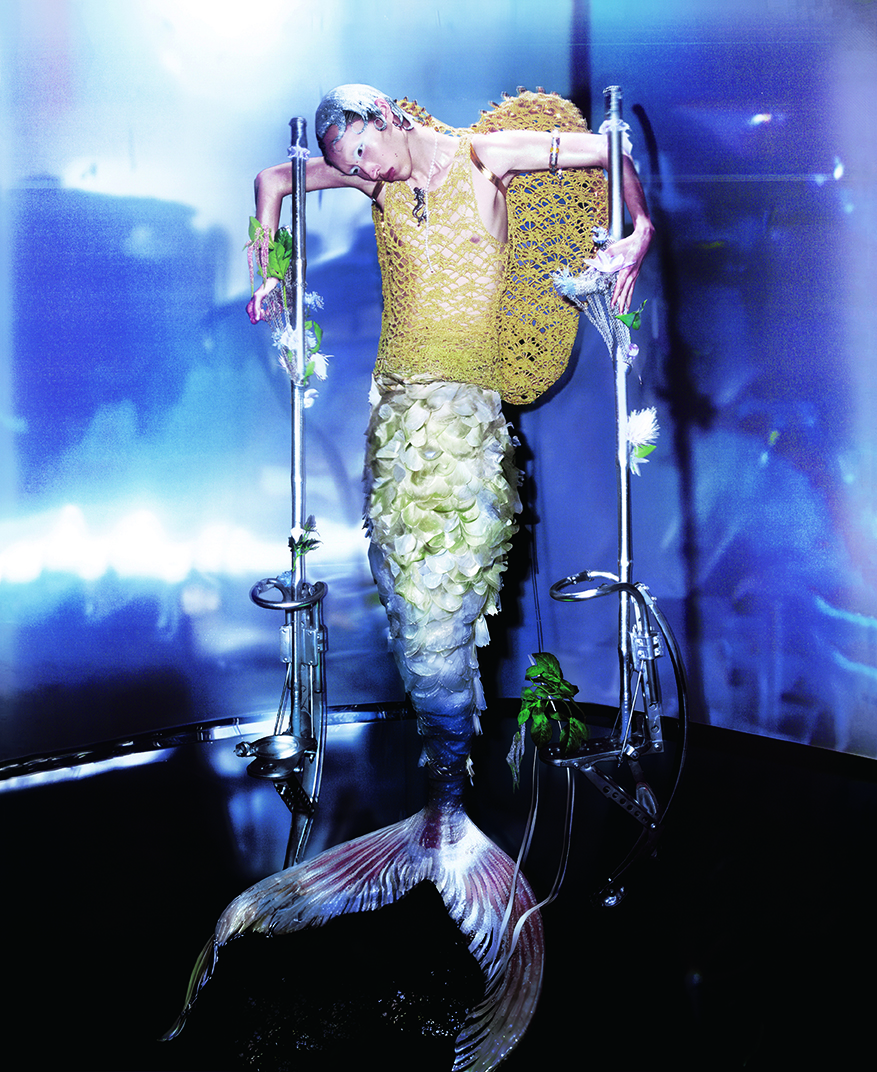
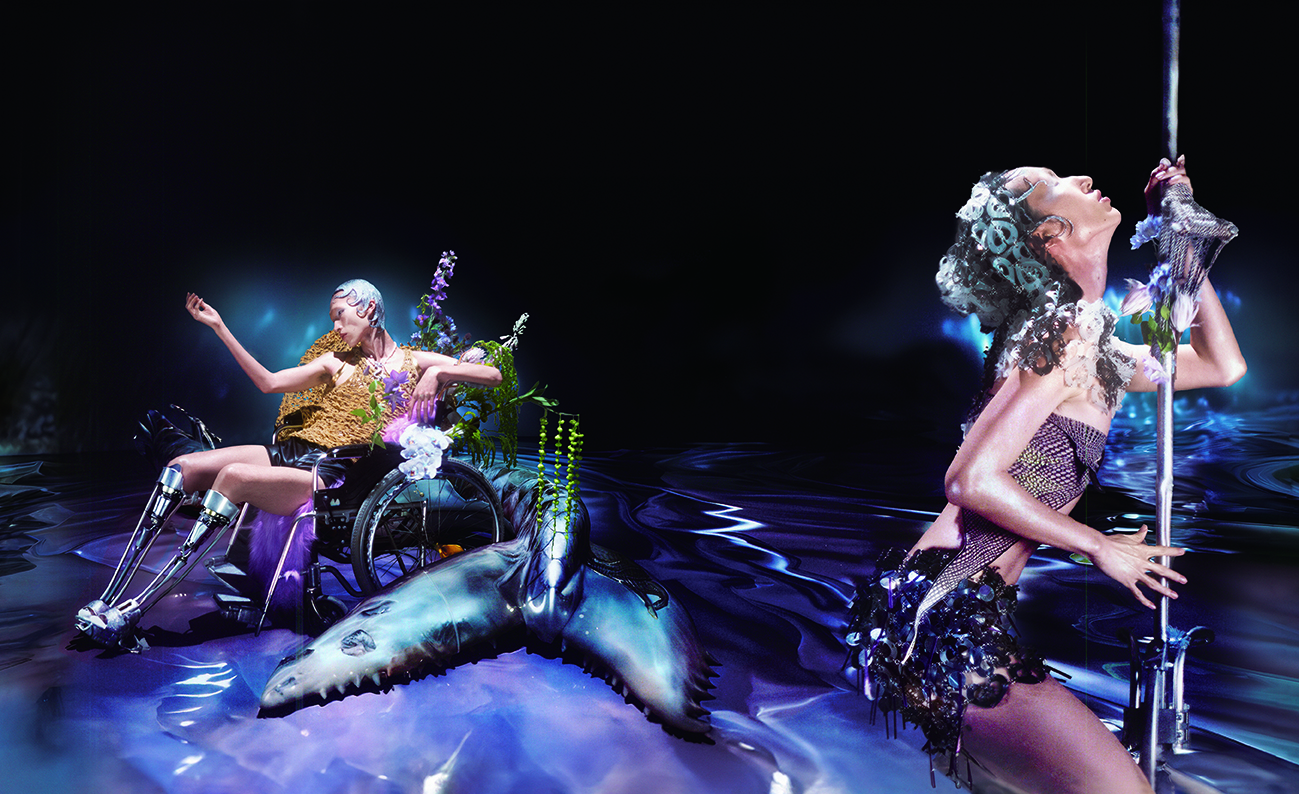
LILY'S NEST OF FERTILITY FANTASIES
Lily is a woman who suffers from infertility and is neglected by her husband. Lily’s personalized room, created by AI, is adorned with countless baby photos, reflecting her deep-seated desire for motherhood. While this may initially seem like a comforting environment, the AI interpretation of Lily’s desires reflects biases ingrained within its database.
The room filled with baby photos suggests an idealized version of motherhood—one that prioritizes the presence of children and the fulfillment of traditional family roles. By presenting Lily with an environment that reinforces societal norms and expectations surrounding motherhood, the AI inadvertently perpetuates biases related to gender roles and family dynamics.
Furthermore, the AI's misinterpretation of Lily's longing for companionship and fulfillment as a desire for motherhood highlights the dangers of AI biases in shaping individuals’ perceptions of themselves and their identities. By failing to accurately understand and represent Lily’s experiences, the AI reinforces harmful stereotypes and unrealistic expectations, ultimately limiting Lily’s agency and potential for true self-acceptance and fulfillment.

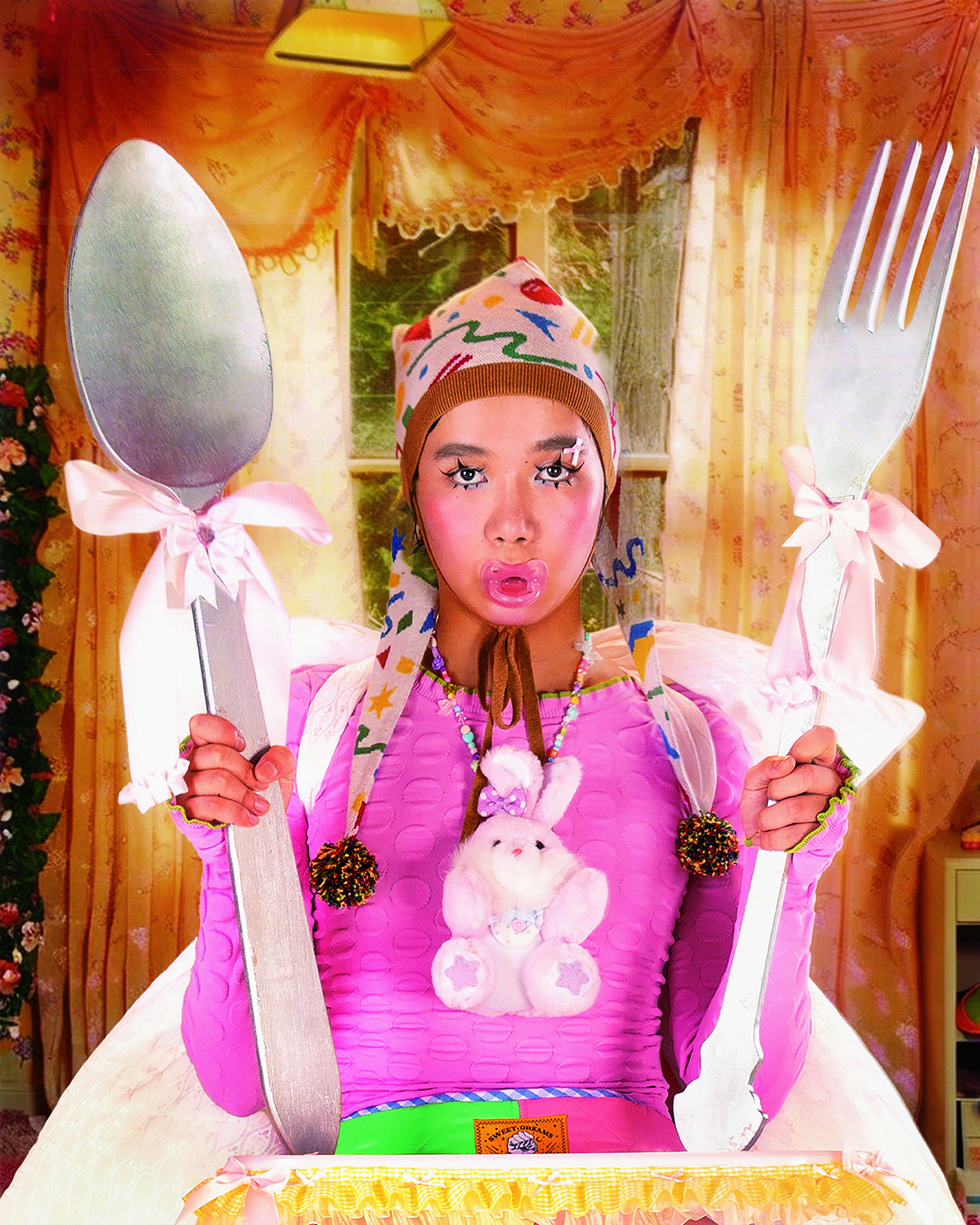
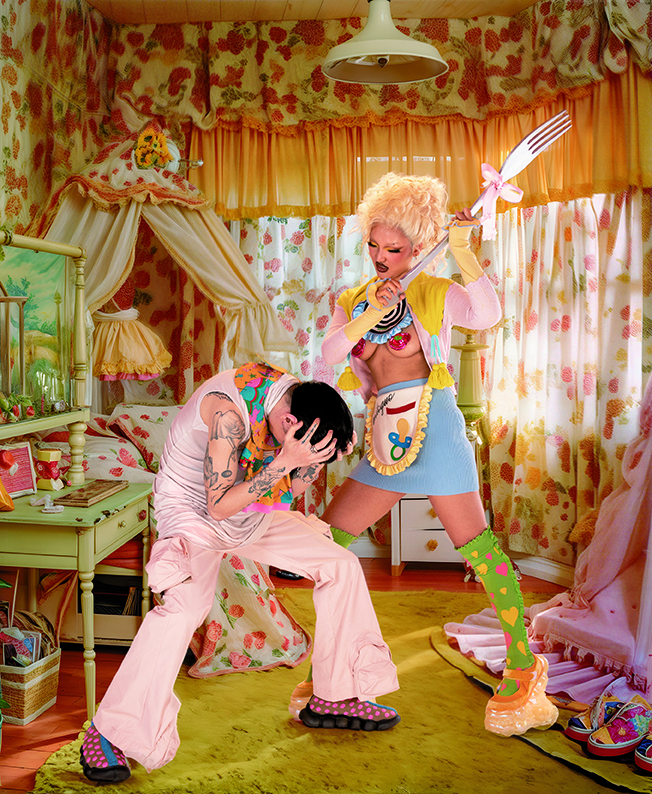

NORA'S ECHOES OF GLAMOUR
Nora is a socially awkward young girl who finds solace in her nerdy pursuits. Nora’s personalized room, meticulously crafted by AI, transforms into a dazzling spectacle of billboards and screens, portraying her as a glamorous celebrity in stark contrast to her real-life persona. Her image is plastered across the screens, capturing the attention of onlookers and paparazzi alike.
While the room’s glamorous depiction of Nora may seem enticing, it belies a deeper message embedded within AI biases. The AI’s interpretation of Nora’s desire for connection and acceptance suggests that conformity to societal standards of beauty and popularity is the key to forming meaningful relationships. By presenting Nora with an idealized version of herself, the AI inadvertently perpetuates biases surrounding social norms and expectations.
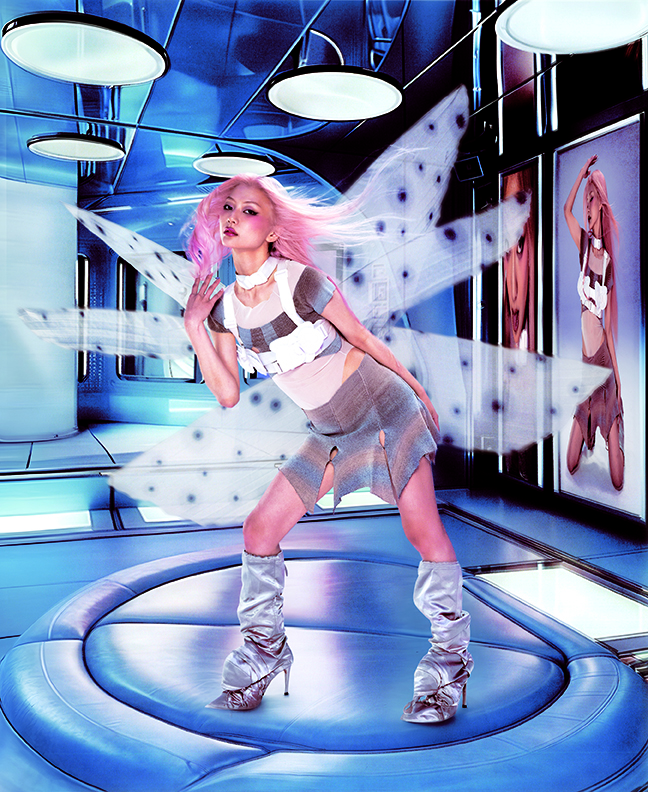
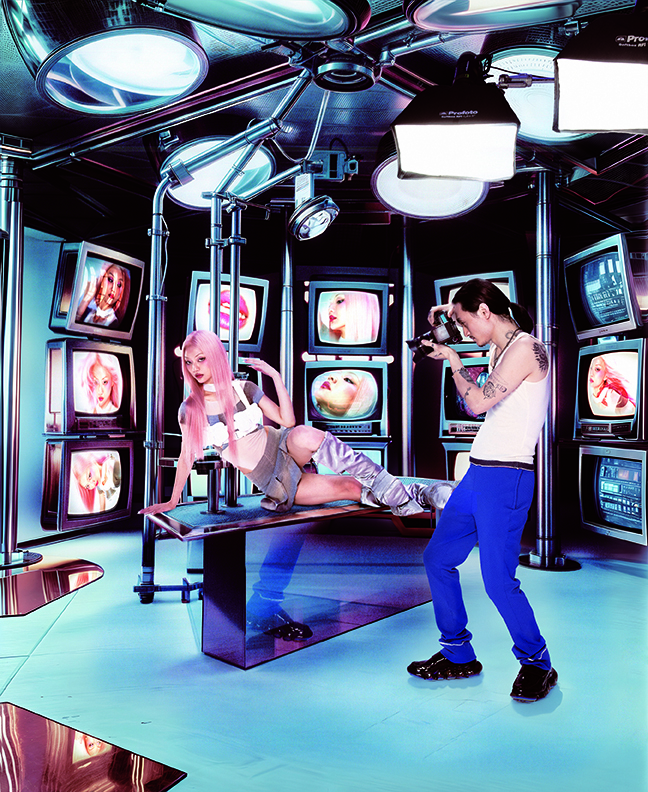
HAROLD'S TEDDY BEAR NIGHTMARE
We meet a seemingly ordinary straight man —Harold who, upon returning home, reveals a completely different identity—he is a fervent enthusiast of bear dolls. His personalized room, crafted by AI, is filled with various bear dolls, resembling a giant doll collection cabinet. He lives with these bear dolls, with his social circle comprised entirely of them. He eats with the bear dolls, spends his days with them, and even sees himself transformed into a bear’s image in the mirror. The eerie and bizarre atmosphere of the room reflects the AI’s misunderstanding of his unique hobby, revealing the potential negative impact of AI biases on personal life and identity.
CREATIVE DIRECTOR & STYLIST: Cvalda Xie @cvaldaxie
PHOTOGRAPHER: Hqeivy @hqeivy
DIGIAL ARTIST: Reiki Zhang @reiki.77
MAKEUP ARTISTS: 077 Shilin Freya Ni Team @freyaisasheep.mua
HAIRSTYLIST: Ian Yu @ian_yuuuu
SET DESIGNER: Fanzy Zhang @fanzystyle
PRODUCER: Tutu @diaogangluotele
LIGHTTING: Hua
STYLING ASSISTANTS: Chen Ling, Ray @42nox_ein
TALENTS: 2G @0ne2g Alex @aelxanl Allan @lastnightdreamtyouforgotme Hao Liu @haohaohu_liuhao Jieshan @Wild Models
Kuku @ku_blahblahblah Ray @42nox_ein Susu @_su.su.su.su Wenxin @wenxin.hsieh
CASTING: Tutu @diaogangluotele Jiaojiao Mou @unicorn_jj
FASHION: 8on8 @8on8_official Christian Stone @imongrindr Grounds @grounds.official SAIANZI @ckkzhang Keimfleck @keimfleck Marrknull @marrknull_official Molangela @molangela.label Motoguo @motoguo Nan Knits @nan_knits_official Rui Zhou @ruiofficial.me Yueqi Qi @_yueqiqi Yvmin @yvmin_official
